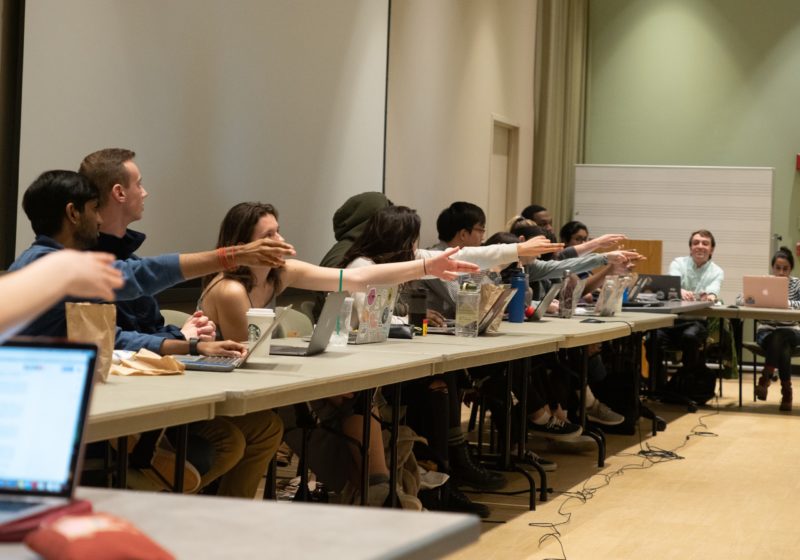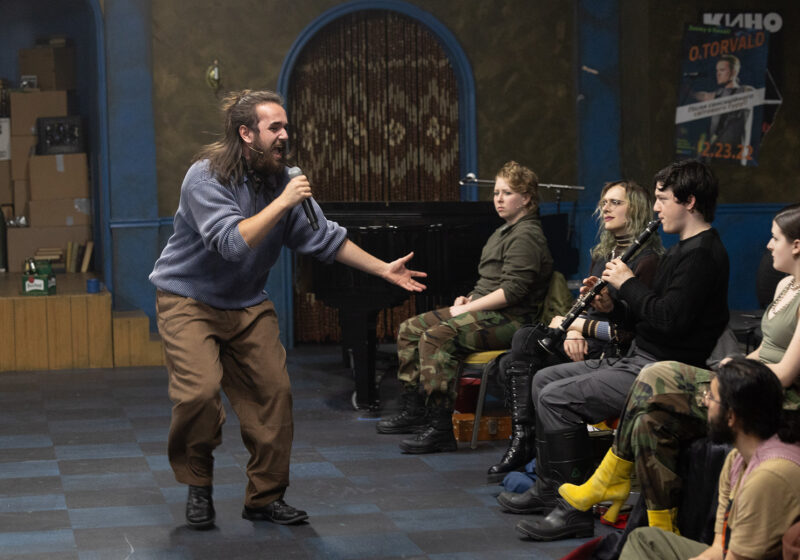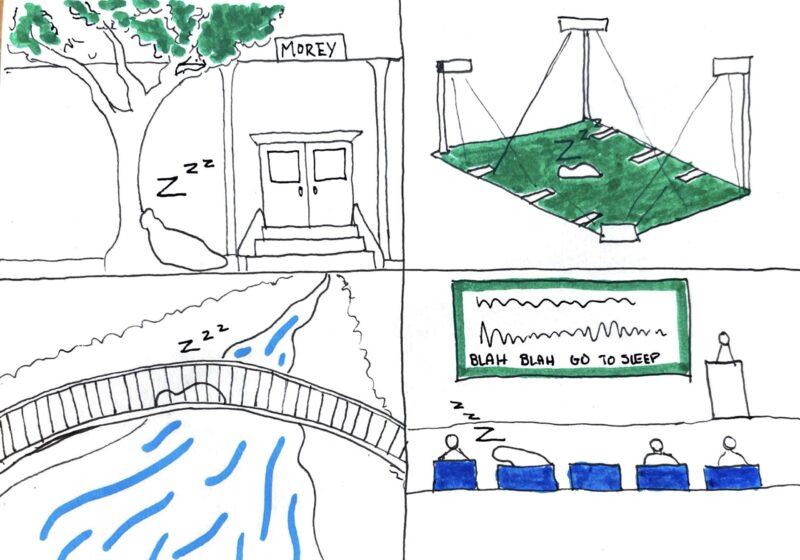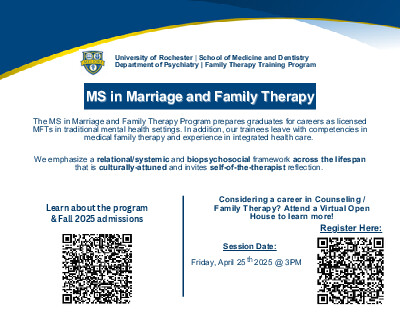A resolution to implement all-gender restrooms in all River Campus buildings passed unanimously in SA Senate.
The March 2 vote was the culmination of months of work put into a report, assembled in the SA Campus Services Committee, evaluating the status of all-gender restrooms on campus and recommending improvements. The ultimate goal, the report says, is that no student will ever be more than a floor away from an all-gender restroom.

Senior Gerardo Zambrano encouraged senators to make sure that the resolution led to real change. Photo by Henry Litsky.
All who spoke in the half-hour discussion before the vote supported the resolution, but there was concern about whether the resolution would translate into action.
One student in the gallery, which was so full that some were sitting on the floor, pointed to Senate resolutions passed in 2015 urging the implementation of all-gender restrooms. The student, senior Gerardo Zambrano, encouraged senators to make sure they are “keeping on it and making sure it’s actually being done.”
Early on, Legislative Adviser to the committee Lumi Schildkraut — who took a leading role in assembling the report — said that creating something actionable was a priority.
Schildkraut, a senior who is also a senior staff member of the Campus Times, said her way of ensuring that was to get perspectives from administration as well as students. At the time of the vote, the report was endorsed by four deans, as well as student groups like the Trans, Intersex, Non-binary, and Two-spirit Community; Pride Network; and College Feminists.
Schildkraut also pointed to the simplicity of converting some gendered restrooms into all-gender restrooms — changing the sign outside the door — and said that student voices would remain heard by administration. The report has been delivered to two vice-presidents of UR, Schildkraut said, as well as six deans. Schildkraut also said that she is on Dean of Arts, Sciences, and Engineering Faculty Donald Hall’s All Gender Restroom Committee, which is looking at implementation of such restrooms.
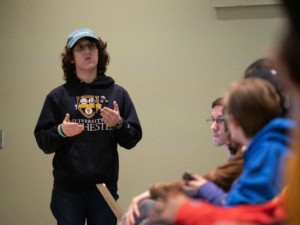
Senior Lumi Schildkraut, Legislative Advisor to the Campus Services Committee, took a leading role in the assembly of the report. Photo by Henry Litsky.
“There is a voice there and there is absolutely a push from the student end to make it happen,” Schildkraut said, adding that it seemed like administration would be on board as well.
For privacy in all-gender restrooms, the report recommends first introducing rubber strips to close gaps between stall doors and walls, and — as extended goals— installing barriers between urinals, and taking measures towards accessibility of the restrooms for disabled users.
The long-term ideal, Schildkraut said, is that most all-gender restrooms at the school are reminiscent of those at Evans Lam Square in Rush Rhees Library. Those restrooms are accessible for those with disabilities, and each toilet is in it’s own cubicle with walls that go down to the floor, rather than a traditional stall. But, Schildkraut said, the need for more all-gender restrooms is so immediate, the committee felt it was important to present a quick solution as well.
Some disagreement arose when first-year Senator Christopher Lu spoke in support of the resolution, but noted potential issues — namely cultural and religious — some might have with all-gender restrooms. Lu said that changes could always be made to the action taken depending on the trends of what people are comfortable with at the time.
Other senators and attendees pushed back against this idea.
Senator Akshay Sharathchandra, a junior, said it was “a little bit disingenuous to make a big report like this and then say that this is something that can be evaluated based on trends of people.” The comment received snaps of approval from the gallery.
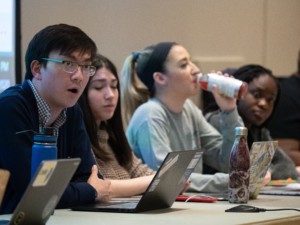
First-year Senator Christopher Lu spoke in support of the resolution, but provoked some pushback when he said that varying action could be taken depending on trends of what people are comfortable with at the time. Photo by Henry Litsky.
Junior Sydney Good said from the gallery that the comfort of students shouldn’t be the only matter of discussion. “The issue of having these restrooms isn’t just about comfort and inclusion,” they said, “it’s about physical safety. It’s about not being attacked, not being harassed, not being called out.”
Lu clarified that he strongly supported the resolution. “I do want to be able to say I was a part of this.”
An international student in the gallery said that he thought adjusting to cultural differences was a part of the UR experience. He said that he initially thought UR’s all-gender restrooms were the first he’d ever seen.
“But then I realized it’s not different than sharing the same bathroom that I did with my mom and my sister,” he said, to snaps and laughter. “It’s not like back home, my dad and I had to go down a floor in order to use the restroom.”
Senator Brendon Tran, a sophomore, then asked if there was anyone with actual opposition in the room. After a silence, Tran moved to vote, “so we can leave.”
The resolution’s passage was met with cheers and applause from the audience.
After the vote, Good told the CT that they recently came out as genderqueer, and that while they were happy with the vote, “I’m really hoping that [..] the administration shows the same kind of support that the Senate does.”
